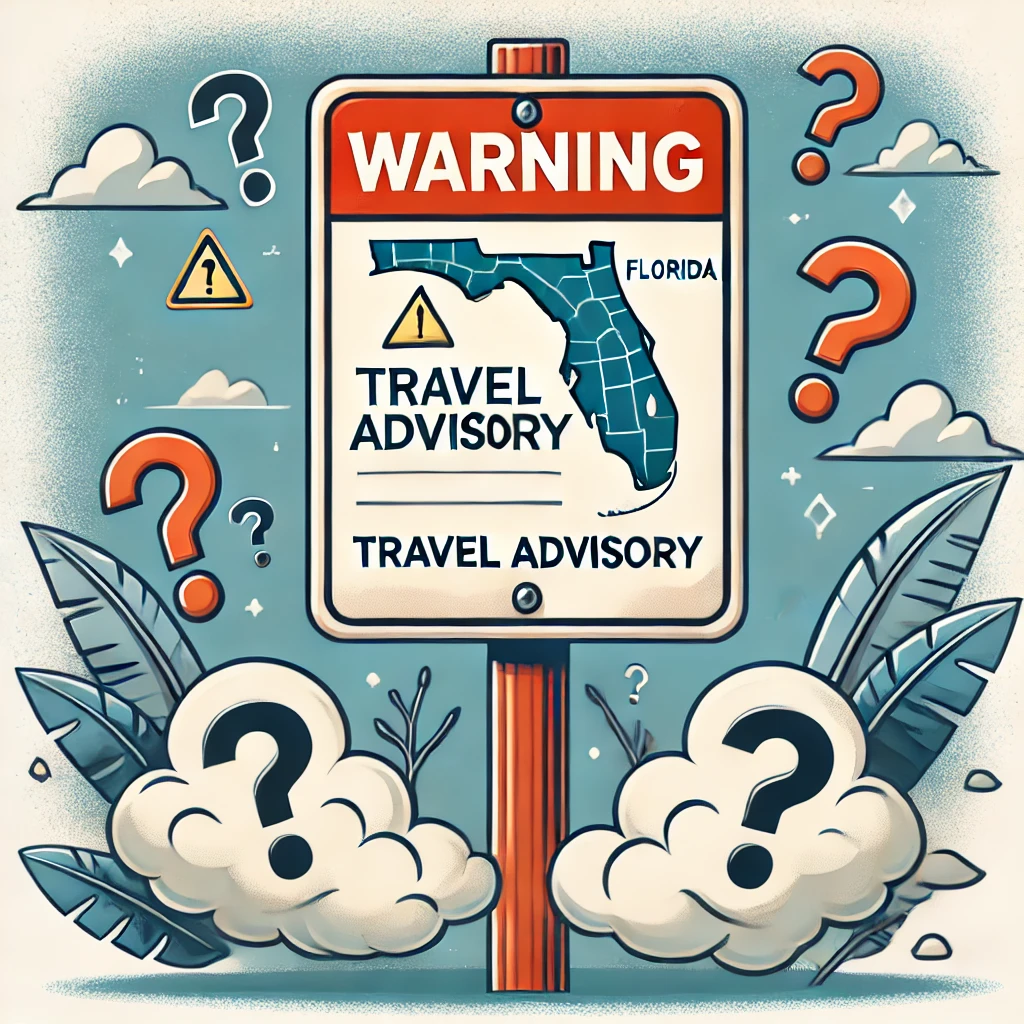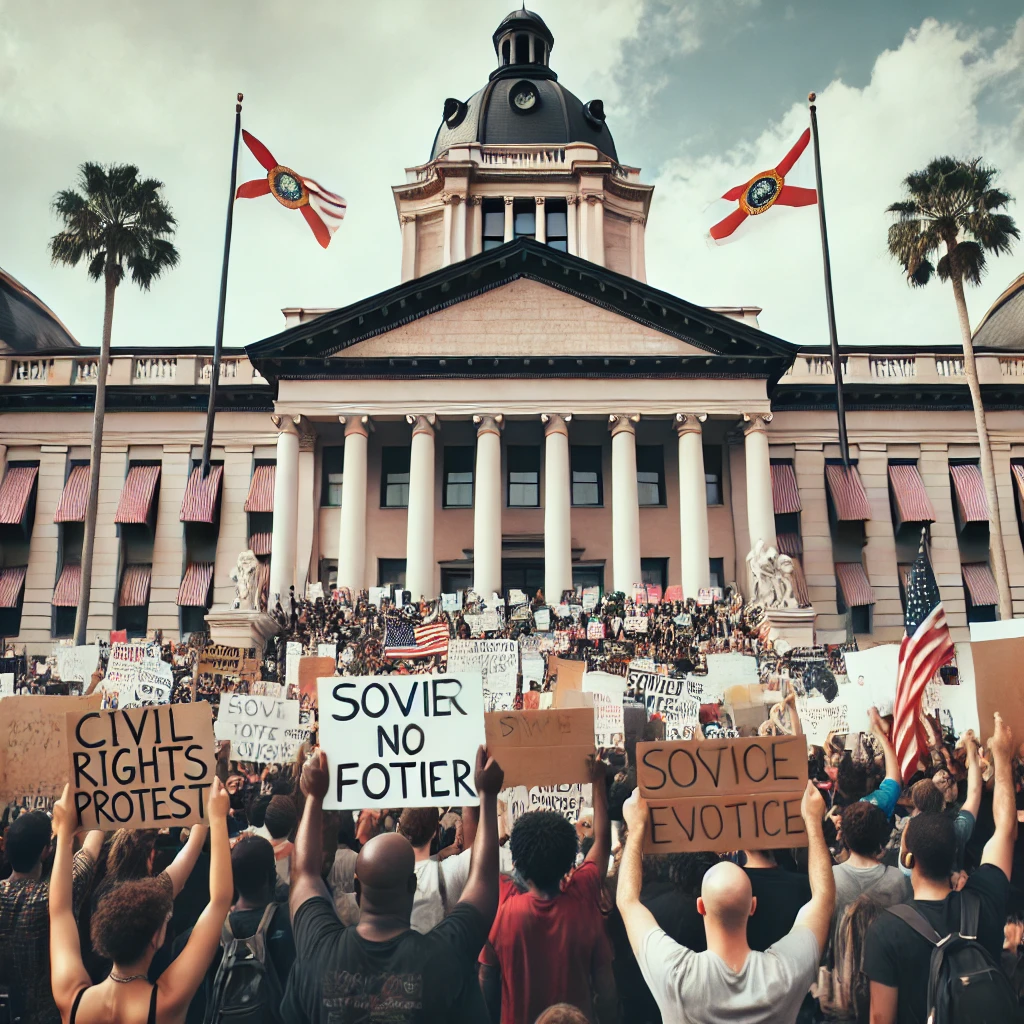Why Is There a Travel Advisory for Florida?
Understanding Travel Advisories
What Is a Travel Advisory?
Travel advisories are official notices issued to alert travelers about potential risks in a specific location. These can include anything from natural disasters to political unrest or health threats. Think of them as weather forecasts for your safety — you might not cancel your trip because it might rain, but you’ll pack an umbrella just in case.
In the case of Florida, the advisory isn’t coming from just one source — it’s a wave of warnings from civil rights groups, international bodies, and even social influencers raising red flags. These advisories aren’t bans, but they do affect public perception and behavior. They serve to inform travelers so they can make educated decisions based on current conditions.

Who Issues Travel Advisories and Why?
Traditionally, travel advisories are issued by governments — like the U.S. State Department — when citizens may face danger abroad. But within the U.S., advisories are more often put out by nonprofit organizations, advocacy groups, and even travel platforms.
In Florida’s case, groups like the NAACP, Human Rights Campaign, and Equality Florida have released advisories, citing concerns over the state’s political climate, laws perceived as discriminatory, and threats to marginalized communities. These organizations aren’t warning of hurricanes or alligators — they’re pointing to policy shifts that could make some people feel unsafe or unwelcome.
Their goal? Not to scare people, but to inform — especially those in communities who may be most affected.
Reasons Behind the Travel Advisory for Florida
Political and Social Climate
Florida’s current political atmosphere plays a massive role in these advisories. The state has gained a national spotlight for its controversial legislative changes, particularly under the leadership of Governor Ron DeSantis. From crackdowns on educational content to restrictions on discussing certain topics in schools, the political climate has sparked both praise and protest.
Many view Florida as a testing ground for culture war policies — where divisive topics are turned into legislation. This includes policies on gender identity, critical race theory, immigration, and voting rights. For travelers who fall into affected demographics — like LGBTQ+ individuals, people of color, or immigrants — this environment can feel hostile or unsafe.
These laws don’t just stay on the books — they affect real people’s lives, both residents and visitors. And that’s what’s fueling the advisory wave.
Controversial Laws and Regulations
Some of the legislation leading to travel advisories includes:
-
“Don’t Say Gay” Law: Limits discussions of gender identity and sexual orientation in schools.
-
Anti-Immigration Laws: New bills increasing enforcement and penalties, even impacting businesses that hire undocumented workers.
-
Book Bans and Education Restrictions: Targeting topics like race, history, and gender in schools and libraries.
-
Permitless Concealed Carry Law: Making it easier to carry firearms without permits.
These laws are cited as reasons why certain populations might feel vulnerable in Florida. Whether these concerns are about safety, dignity, or simply being unwelcome — the message from the advisory issuers is clear: “Think twice before you go.”
Civil Rights and Safety Concerns
Advocacy groups argue that civil liberties are under attack in Florida. For marginalized communities, it’s not just about the law — it’s about the lived experience. LGBTQ+ travelers worry about hostile treatment. Black travelers fear profiling or police encounters. Immigrant families may worry about being targeted or reported.
In a world where people are choosing destinations based on how inclusive they feel, these issues aren’t minor — they’re make-or-break. That’s why these travel advisories pack such a punch. They’re speaking to the human experience, not just legal theory.
Health and Environmental Risks
While the social climate takes the spotlight, health and environmental issues also play a role. Florida has faced:
-
Rising COVID-19 Variants: With limited mandates or protective measures.
-
Toxic Algae Blooms: Affecting water quality and beach safety.
-
Heatwaves and Hurricane Threats: Seasonal, but increasingly unpredictable.
These issues, especially when combined with concerns about public health policy rollbacks, contribute to the overall narrative: Florida might not feel like a safe, easy place to visit for everyone.

Key Groups Issuing Warnings
NAACP and Other Civil Rights Organizations
In a bold and unprecedented move, the NAACP (National Association for the Advancement of Colored People) issued a formal travel advisory for the state of Florida. This was not a decision made lightly. Their advisory warns that the state has become “openly hostile” toward African Americans, people of color, and LGBTQ+ individuals. Why? Because of a series of legislative actions that, according to the NAACP, roll back progress on racial equality and inclusion.
This advisory was a powerful message, especially coming from one of the oldest civil rights organizations in the U.S. They argue that Florida’s policies undermine diversity, equity, and inclusion initiatives. For example, the state’s rejection of an AP African American Studies course and laws that limit race-related discussions in schools have sparked outrage.
Other groups followed suit. Organizations like the League of United Latin American Citizens (LULAC) and Equality Florida echoed similar sentiments. These coordinated advisories create a collective voice saying: Florida may not be the welcoming vacation spot it once was — at least, not for everyone.
International Governments’ Warnings
It’s not just American civil rights groups sounding the alarm — some foreign governments have added their voices, too. Several consulates and travel boards from countries in Europe and Latin America have advised their citizens to be cautious when traveling to Florida, particularly if they identify as LGBTQ+ or are people of color.
Although these warnings may not be as strongly worded as the domestic advisories, they still suggest heightened awareness and precaution. The mere fact that governments abroad feel the need to comment on Florida’s internal climate speaks volumes about its global reputation. It suggests that the perception of Florida as a safe, inclusive travel destination is shifting.
This kind of international scrutiny can have serious implications. It not only affects tourism but also Florida’s relationships with international business partners, exchange programs, and cultural institutions.
LGBTQ+ Advocacy Group Alerts
Florida has become a flashpoint for LGBTQ+ rights — and not in a good way. Advocacy groups such as Human Rights Campaign and Equality Florida have issued formal travel warnings, particularly focusing on new laws they believe endanger the LGBTQ+ community.
These include:
-
Bathroom Bills that dictate which public restrooms transgender individuals can use.
-
Limitations on Gender-Affirming Care, especially for minors.
-
Educational Restrictions, like bans on discussing LGBTQ+ topics in schools.
Equality Florida’s advisory was particularly emotional, warning that even long-time residents are considering relocation due to the increasing hostility. These groups aren’t just warning travelers; they’re warning the world about a climate of fear and discrimination.
And with major events like Pride festivals and drag performances under legal and social scrutiny, LGBTQ+ tourists may think twice before choosing Florida as their destination. That’s a serious blow for a state that once marketed itself as diverse and inclusive.
Impact on Tourism and Economy
Tourist Behavior and Booking Trends
When travel advisories hit the news cycle, they don’t just spark conversation — they spark action. There’s growing evidence that tourism in Florida is taking a hit, especially among certain demographics. Families of color, LGBTQ+ individuals, and international tourists are reevaluating whether Florida aligns with their values and safety expectations.
Online booking platforms have reported shifts in traffic and reservation patterns. Social media campaigns like #BoycottFlorida or #TravelElsewhere are gaining momentum. People are choosing alternative destinations that promise a safer, more welcoming experience.
What’s especially notable is the rise in “values-based travel” — where tourists make choices not just based on weather or theme parks, but on a place’s inclusivity, politics, and treatment of marginalized groups. Florida, for many, is failing that test right now.
Economic Consequences for Local Businesses
It’s not just theme parks and beach hotels feeling the heat. The ripple effects of these advisories extend to small businesses, restaurants, and local attractions. When fewer people book vacations, local economies suffer.
In regions heavily reliant on tourism, like Miami, Orlando, and Tampa, even a small dip in visitor numbers can lead to job losses and declining revenues. Businesses that cater specifically to LGBTQ+ tourists or cultural travelers are reporting cancellations and lower foot traffic.
The message is clear: social policies have economic consequences. And if Florida continues down this path, the long-term financial implications could be devastating — especially for industries built on hospitality, openness, and customer satisfaction.
Florida’s Response to the Backlash
Florida’s state leadership has not taken the advisories lying down. Governor DeSantis and his administration have dismissed them as politically motivated stunts, claiming they misrepresent the reality on the ground. According to them, Florida remains one of the most popular and safest states for tourists — and these advisories are simply part of a national political strategy.
State tourism boards have doubled down on marketing campaigns, highlighting Florida’s beaches, theme parks, and attractions. Ads now emphasize that “everyone is welcome” — a direct counter to the warnings being issued.
But words alone might not be enough. Without changes in legislation or tone, many argue that these campaigns feel more like PR than genuine outreach. And in today’s information-rich world, travelers are savvy — they read between the lines and follow more than just glossy brochures.
Public Reactions and Social Media Influence
Public Opinion and Viral Trends
In the age of social media, public perception shifts fast — and it’s loud. Platforms like Twitter, TikTok, and Instagram are flooded with opinions, videos, and discussions about the Florida travel advisories. Some posts go viral with personal testimonies of discrimination or fear, while others offer travel alternatives that align more with progressive values.
Hashtags like #NotMyFlorida, #FloridaAdvisory, and #TravelWithValues dominate travel and social feeds. These aren’t just opinions — they shape behavior, inspire boycotts, and influence travel decisions in real time.
The travel advisory narrative is no longer confined to newspapers and press releases — it’s a cultural moment online, and it’s changing minds faster than any ad campaign can fix.
Influence of Influencers and Celebrities
It’s not just activists and nonprofits driving the conversation. High-profile celebrities and travel influencers are weighing in too. Some are canceling appearances or refusing to host events in Florida. Others are urging followers to reconsider their travel plans.
These influencers have massive reach and credibility — especially among younger travelers. When they speak out, people listen. And when they redirect their travel dollars, followers often follow suit.
In a world where perception can be as powerful as reality, losing the support of celebrities and influencers might be one of the hardest hits Florida’s tourism image has taken.
